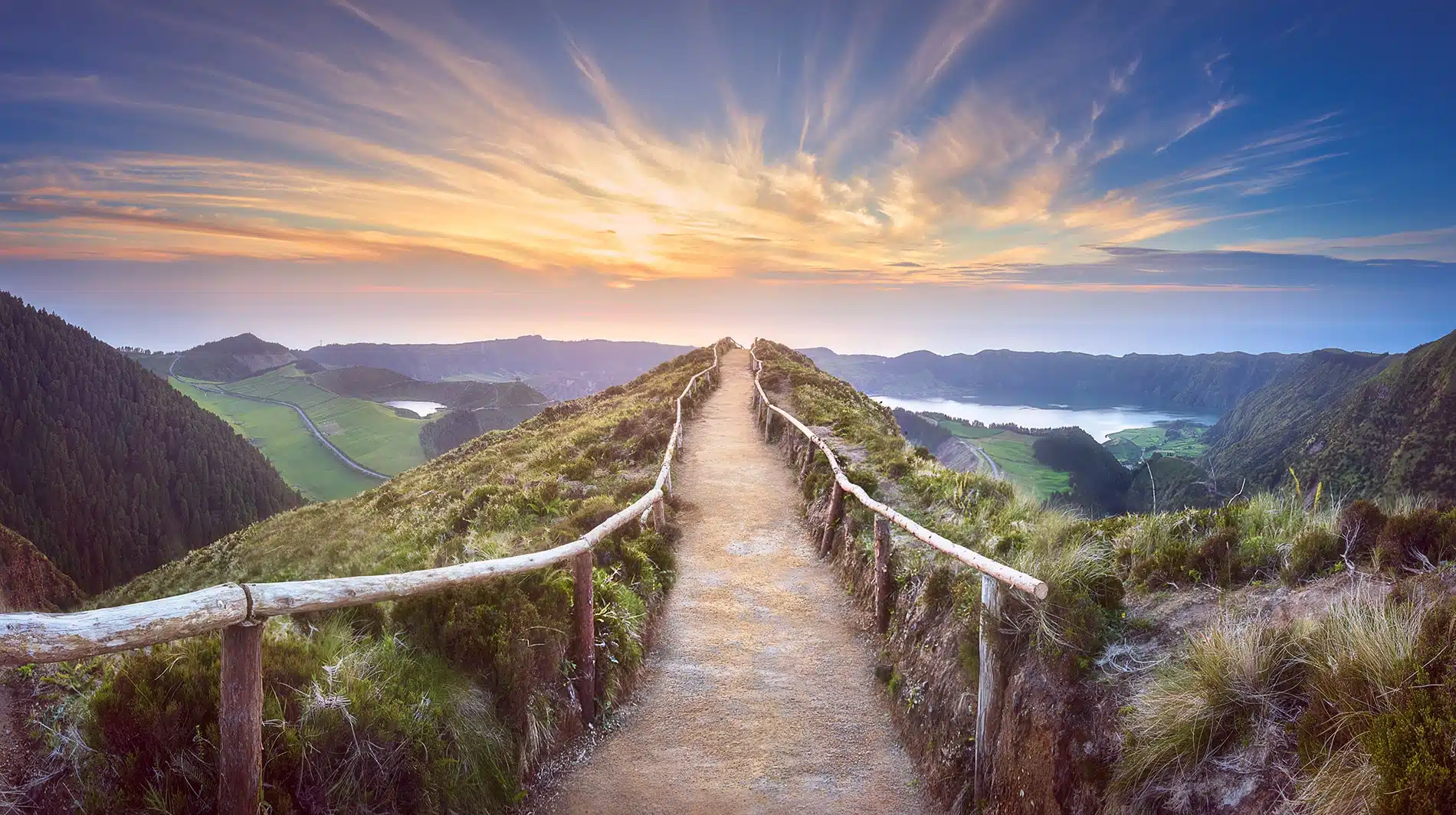Five sites to visit in the Azores
Overlooked by most tourist brochures, the Azores archipelago is composed of nine islands boasting some of the most fascinating natural wonders the Atlantic Ocean has to offer. We have selected five places that will ensure an unforgettable trip.
1. The Lagoa do Fogo (Lake of Fire) – On São Miguel island
The Azores archipelago is a small region of Portugal (often called “the Garden of Portugal”) located 1,500 km off the coast of Morocco. Of the nine islands that make up the archipelago, São Miguel is the biggest and most populous, with the richest array of natural beauty spots, which is why it is the main focus of this selection.
Home to one of the three volcanoes found in this cluster of islands, São Miguel provides keen hikers with an exceptional panoramic view of the island and the infinite horizon if they start to climb the caldera (the cauldron-like hollow formed by the volcano) located in the heart of the Agua de Pau Massif. This volcanic relic has been collecting rainwater for many years, resulting in the formation of two inland lakes. The brilliance of their outstanding turquoise waters competes with another local treasure: the azure blue sky.
2. The Caldeira Velha waterfall
Still in São Miguel, the Caldeira Velha nature reserve in Ribeira Grande rewards visitors with lush vegetation, typical of a semi-tropical climate.
A stroll beneath the canopy will also lead them to the famous Lagoa do Fogo via a magnificent waterfall that irrigates its two large natural pools. A swim in the 38°C water is too good to turn down, with the added promise of secret places to discover behind the waterfall.
3. The elephant viewpoint
One last stroll on São Miguel close to the town of Capelas has a final surprise in store, the kind that can only be co-created by nature and time. Along the coast, a cliff plunging into the water undeniably resembles an elephant!.
The depiction is so perfect that you’d be forgiven for believing it was man-made, at least in part. In actual fact, sea salt and centuries of erosion are the artists behind this perfectly shaped elephant-headed cliff Its ears seem to be listening for approaching ships while its trunk is immersed in the ocean, attempting to quench an apparently eternal thirst.
4. The Cathedral of Santíssimo Salvador – On Terceira Island
Head to Terceira island and its emblematic building: the Cathedral of Santíssimo Salvador, which is the largest church in the archipelago. Built in 1570, it was a daring construction at the time because it was oriented to the north despite ancient customs dictating that the main chapels of churches should face east, towards Jerusalem.
Its gold and white facade overlooks the historic centre of Angra do Heroismo, a listed UNESCO World Heritage site. This former capital of the Azores archipelago has preserved its splendid architecture, and is best visited at sunset.
5. The Caldera – On Faial Island
In the middle of the archipelago, the small island of Faial is also a refuge for a dormant volcano. In the centre of this piece of land lies a caldera, about 2 km in diameter with an average depth of 300 m.
Its almost vertical cliffs embrace a protected nature reserve dominated by blue hydrangeas, and the impressive cauldron is home to a rich biodiversity.
A few tiny islands sprinkled like confetti on the surface of the great Atlantic Ocean await curious travellers in search of a memorable break, laced with natural beauty.

PONANT takes you there
Be amazed by the magic of the Azores during a luxury cruise.



